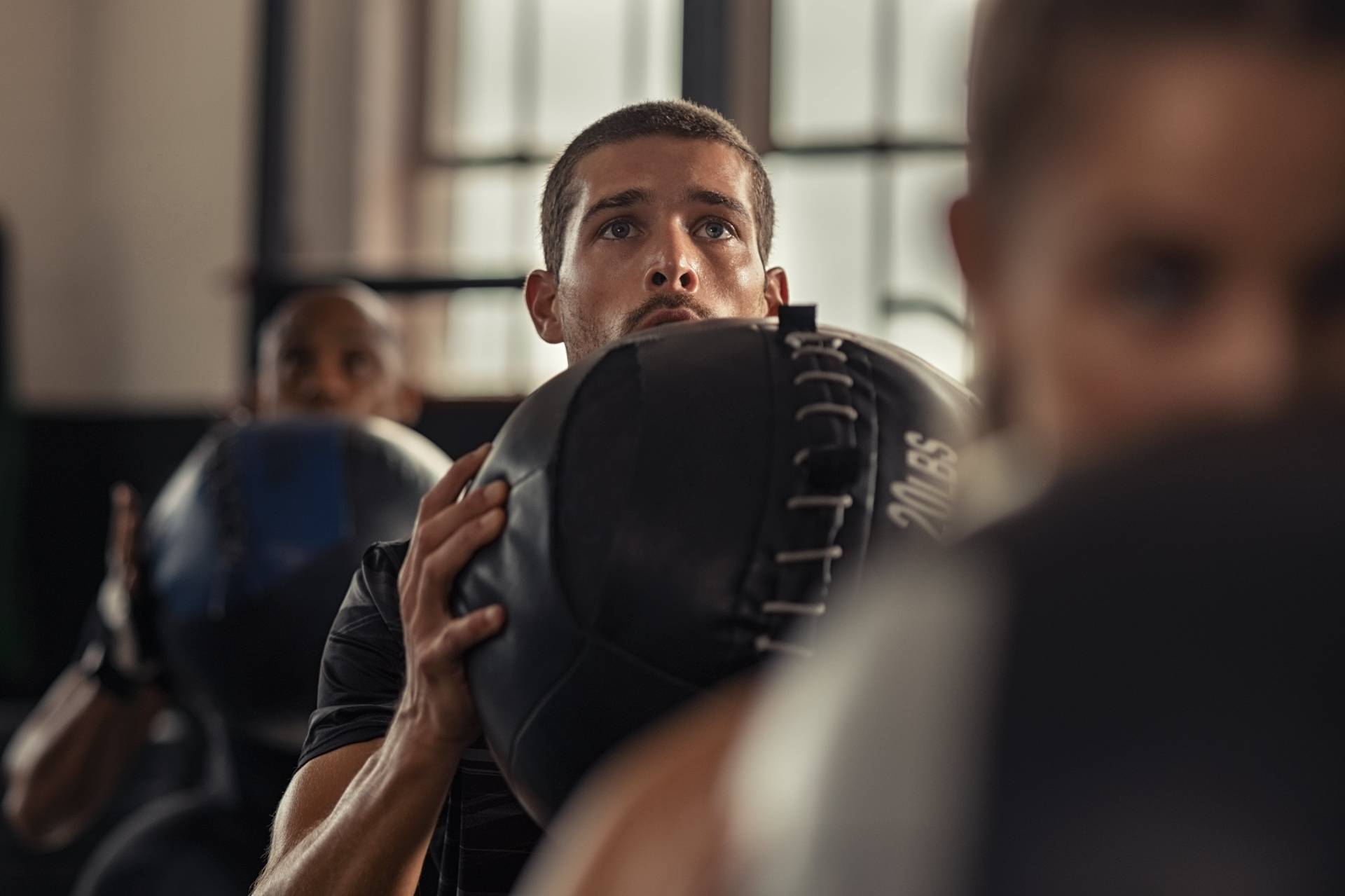Mental focus refers to the ability to concentrate and direct one’s attention on a specific task or goal. In the context of sports, mental focus is crucial for athletes to achieve optimal performance. It involves the ability to block out distractions, stay present in the moment, and maintain full concentration on the task at hand. Mental focus enables athletes to execute their skills with precision, make quick decisions, and react effectively to the dynamic nature of their sport. It plays a pivotal role in both the physical and psychological aspects of athletic performance. Athletes who possess strong mental focus are better equipped to handle the pressures, challenges, and setbacks that come with competing at a high level. By developing and nurturing their mental focus, athletes can enhance their performance, overcome mental barriers, and ultimately achieve success in their respective sports.
Types of Mental Focus
Mental focus is a crucial aspect of athletic performance. It allows athletes to tune out distractions, maintain concentration, and make split-second decisions in the heat of competition. Different types of mental focus can enhance athletic performance.
The first type is focused attention. This is the ability to concentrate on specific cues, such as a target or a strategy, while ignoring irrelevant information. Focused attention helps athletes stay engaged in the present moment and execute their skills with precision.
The second type is immersed attention. This is a deep state of concentration where athletes become fully absorbed in the task at hand. Immersed attention allows athletes to enter a flow state, where they lose track of time and perform effortlessly. It is often associated with peak performance.
The third type is refocused attention. This is the ability to quickly redirect focus after a distraction or mistake. Refocused attention allows athletes to bounce back from setbacks and maintain their performance level. It also helps athletes stay resilient and adapt their strategies as needed.
All three types of mental focus contribute to improved concentration and effectiveness in sports. Focused attention helps athletes execute skills accurately, while immersed attention enables athletes to perform at their best. Refocused attention allows athletes to stay mentally resilient and maintain a consistent level of performance.
Benefits of Mental Focus in Sports
Mental focus is not only crucial for athletic performance, but it also brings numerous benefits to athletes. When athletes have a high level of mental focus, they experience enhanced performance. By blocking out distractions and staying fully engaged in the present moment, athletes can execute their skills with precision and accuracy.
Another benefit of mental focus in sports is improved decision-making skills. When athletes are mentally focused, they can make split-second decisions with clarity and confidence. This allows them to react quickly to changing situations on the field or court, giving them a competitive edge.
Furthermore, mental focus boosts athletes’ confidence. When athletes can maintain a high level of concentration, it helps them believe in their abilities and trust their training. This self-assurance is crucial for optimal performance and can help athletes push through challenges and achieve their goals.
In addition, mental focus reduces anxiety and stress. By training the mind to stay focused, athletes can quiet their racing thoughts and remain calm under pressure. This can greatly reduce performance anxiety and allow athletes to perform at their best, even in high-stakes situations.
Lastly, mental focus increases resilience. When athletes have a strong mental focus, they are better equipped to bounce back from setbacks and adapt their strategies as needed. They can quickly refocus after distractions, mistakes, or unforeseen circumstances, maintaining their mental stamina and keeping a consistent level of performance.
Techniques for Improving Mental Focus
Having a strong mental focus is crucial for athletes looking to reach their peak performance. Fortunately, various techniques can help improve mental focus, allowing athletes to enhance their concentration, decision-making skills, and overall performance on the field or court.

Visualization Techniques
Visualization techniques are powerful tools for enhancing mental focus in sports. By creating vivid mental images of successful actions and outcomes, athletes can activate the same parts of the brain associated with actual successful performance.
One technique is creating a mental highlight reel. Athletes can visualize themselves executing their skills flawlessly, from the perfect serve in tennis to the game-winning shot in basketball. By repeatedly visualizing these successful actions, athletes enhance their focus, confidence, and overall performance.
Another technique is visualization with sensory details. Athletes can imagine the sound of the crowd, the feel of the field or court beneath their feet, and the smell of the surroundings. By incorporating all their senses, athletes create a more immersive experience, enhancing their mindfulness and cognitive control.
Furthermore, visualizing the result contributes to mental toughness. By focusing on the ultimate goal, whether it’s winning a championship or achieving a personal record, athletes develop mental resilience and determination. This mental toughness helps them stay focused, overcome obstacles, and perform at their best even under pressure.
Mindfulness Meditation
Mindfulness meditation is a powerful technique that can greatly improve mental focus in sports. It involves bringing one’s attention to the present moment and cultivating a non-judgmental awareness of thoughts, emotions, and bodily sensations. By practicing mindfulness meditation, athletes develop the ability to tune out distractions and stay fully engaged in their performance.
One of the key benefits of mindfulness meditation is its ability to help athletes bring their attention to the present moment. In sports, it’s easy for the mind to wander to past mistakes or future anxieties. However, mindfulness meditation trains athletes to stay focused on the here and now, enhancing their ability to perform at their best. It enables athletes to let go of negative thoughts and emotions that can hinder their performance and instead channel their focus into the present moment.
Another advantage of mindfulness meditation is its ability to help athletes tune out distractions. Through regular practice, athletes become more adept at recognizing and letting go of irrelevant thoughts, emotions, and external stimuli. This enables them to fully focus on the task at hand and not be influenced by distractions that may arise in the heat of competition.
The benefits of mindfulness meditation for athletes are numerous. It can increase mental toughness, as athletes learn how to remain composed and resilient in the face of challenges. It improves focus, allowing athletes to concentrate fully on their skills and strategies. Additionally, it enhances work ethic, as athletes develop the ability to stay motivated and committed to their training and practice routines.
Relaxation Exercises and Breathing Exercises
Relaxation exercises and breathing techniques are valuable tools that athletes can incorporate into their mental training programs to improve mental focus in sports. These techniques promote relaxation and reduce anxiety, allowing athletes to perform at their best. Here are some effective exercises:
1. Progressive Muscle Relaxation: Start by tensing and then relaxing each muscle group in your body, starting from your toes and working your way up to your head. Focus on the sensations of tension and relaxation in each muscle, allowing yourself to release any tension you may be holding.
2. Deep Breathing: Take slow, deep breaths, inhaling deeply through your nose and exhaling slowly through your mouth. As you breathe, imagine yourself inhaling calmness and exhaling any tension or distractions.
3. Box Breathing: Inhale for a count of four, hold your breath for a count of four, exhale for a count of four, and hold your breath again for a count of four. Repeat this pattern several times, focusing on the rhythm and consistency of your breath.
The benefits of these techniques are significant. They help athletes relax and reduce anxiety, enabling them to stay focused and perform at a higher level. Incorporating these exercises into a regular mental training program is crucial. Consistent practice can help athletes develop greater self-awareness, enhance their ability to manage stress and improve their overall mental well-being.
By incorporating relaxation exercises and breathing techniques into their mental training routines, athletes can optimize their mental focus, promote relaxation, and ultimately enhance their performance in sports.
Goal Setting and Self-Talk
Goal setting and self-talk play a crucial role in enhancing mental focus in sports. By setting clear, specific, and attainable goals, athletes can direct their attention and efforts toward specific actions. This not only keeps them motivated but also prevents their minds from wandering during competition.
Setting short-term goals is particularly effective in keeping athletes focused on immediate actions. Rather than getting overwhelmed by long-term objectives, breaking them down into smaller, manageable targets helps athletes stay present and engaged in the moment. This allows them to avoid distractions and maintain their mental focus throughout the game or event.
In addition to goal setting, self-talk is a powerful tool for maintaining a positive mindset and boosting motivation. Athletes can use positive affirmations and constructive self-talk to encourage themselves, build confidence, and overcome setbacks. By replacing negative thoughts with positive ones, they can cultivate a mental state that is conducive to peak performance.
Regular practice of goal setting and positive self-talk can sharpen an athlete’s mental focus over time. It helps them develop greater discipline, resilience, and mental clarity, which are essential for success in sports. By staying on track with their goals and consciously managing their self-talk, athletes can enhance their mental focus, optimize their performance, and achieve their full potential.
Performance Routines and Pre-Competition Rituals
Performance routines and pre-competition rituals play a crucial role in enhancing mental focus in sports. These structured processes help athletes prepare mentally and physically before a game or event, ensuring they are at their peak performance level.
One of the key benefits of performance routines is their ability to help athletes enter a state of flow. Flow is a psychological concept where individuals are fully immersed in an activity, experiencing a deep sense of focus and enjoyment. By following a consistent routine, athletes can enter this optimal mental state, where their skills are in harmony with the challenges of the sport. This leads to improved performance and an enhanced overall experience.
Moreover, performance routines also help in reducing anxiety and boredom. Anxiety can be a significant barrier to mental focus and optimal performance. By having set routines and rituals, athletes can create a sense of familiarity and control, which can alleviate anxiety and promote a calm and focused mindset. Additionally, routines prevent boredom by creating structure and variety within the athlete’s preparation. This ensures that their training and pre-competition activities are engaging and stimulating, maintaining their mental focus and motivation.
Role of Sports Psychology Professionals in Enhancing Mental Focus
Sports psychology professionals play a crucial role in helping athletes enhance their mental focus, which is essential for optimal performance in sports. These specialists are trained to assess and understand the psychological factors that can impact an athlete’s ability to concentrate and stay focused during competition. Through a combination of psychological techniques, strategies, and interventions, sports psychologists help athletes develop the mental skills necessary to overcome distractions, handle pressure, and maintain a positive attitude in the heat of competition. They work closely with athletes to identify and address any mental barriers or performance anxiety that may hinder their focus, providing effective tools and exercises to improve concentration and emotional regulation. By offering personalized mental training programs and guidance, sports psychology professionals empower athletes to optimize their mental game, ultimately leading to enhanced performance and success in their chosen sport.

Assisting Athletes with Developing a Positive Attitude Toward Competition
Assisting athletes in developing a positive attitude toward competition is crucial for their overall success in sports. A positive attitude not only enhances their mental well-being but also plays a vital role in their focus and motivation.
When athletes cultivate a positive mindset, they are better equipped to handle the pressures of competition. They approach challenges with optimism, viewing them as opportunities for growth rather than threats. This attitude helps athletes stay focused on their goals, even in the face of setbacks or obstacles.
Moreover, a positive attitude enhances athletes’ motivation. They are driven by a belief in their abilities and a desire to perform at their best. This motivation allows them to persevere through difficult times and push themselves to achieve optimal performance.
Several techniques and strategies can be used to foster a positive mindset in athletes. These include visualization exercises, where athletes imagine themselves achieving their desired outcomes. Affirmations and positive self-talk can also be effective in boosting confidence and maintaining a positive attitude. Additionally, setting realistic goals and celebrating small victories along the way helps to reinforce a positive mindset.
Working with Clients on Regulating Emotions During Pressure Situations
Working with clients to regulate their emotions during high-pressure situations is crucial for athletes striving for success. Successful athletes understand that strong emotions, like excitement, anger, and disappointment, are part of the sports experience and can be harnessed to improve performance.
Sports psychology professionals play a vital role in helping athletes manage and regulate their emotions in these high-pressure situations. They employ various strategies and techniques tailored to each individual to address their specific emotional challenges. These can include deep breathing exercises, mindfulness techniques, and progressive muscle relaxation to help athletes stay calm and focused.
Developing emotional intelligence is another key aspect of regulating emotions in high-pressure situations. Athletes who possess emotional intelligence can recognize and understand their own emotions and the impact they have on their performance. They can also empathize with teammates and opponents, providing them with a competitive edge.
Sports psychologists can guide athletes in developing emotional intelligence through techniques such as journaling, self-reflection, and role-playing exercises. By increasing self-awareness and developing effective emotion regulation strategies, athletes can handle high-pressure situations more effectively, leading to improved overall performance.
Utilizing Cognitive Behavioral Therapy to Enhance Performance in Sports
Cognitive behavioral therapy (CBT) is a valuable tool that can be utilized to enhance performance in sports. It focuses on the connection between thoughts, emotions, and behaviors, which can significantly impact an athlete’s performance. By addressing and modifying negative thought patterns and beliefs, CBT can help athletes overcome mental barriers, improve focus, and increase confidence.
One principle of CBT applied in sports is identifying and challenging irrational thoughts. Athletes often have self-defeating beliefs or engage in negative self-talk, such as “I’m not good enough” or “I always choke under pressure.” Through CBT, athletes can learn to recognize these thoughts and evaluate their accuracy and helpfulness. They can then replace negative thoughts with positive and realistic ones, fostering a more positive mindset.
Another technique used in CBT is cognitive restructuring. This involves analyzing and reframing negative or distorted thoughts that may hinder performance. Athletes can learn to substitute unhelpful thoughts with more empowering and motivating ones. For example, instead of dwelling on a mistake, they can reframe it as a learning opportunity and focus on the next play.
CBT can also assist in developing effective coping strategies for managing stress and anxiety. Techniques like relaxation exercises and visualization can help athletes maintain focus and stay calm in high-pressure situations. By challenging and reshaping their thoughts and employing these coping techniques, athletes can enhance their mental resilience and perform at their best.
Conclusion
In conclusion, while cognitive techniques like CBT show promise in improving athlete mental focus, further research, evaluation of prevention and intervention programs, consideration of diverse athlete populations, and investment in comprehensive mental health support are all necessary to promote positive athlete mental health and overall performance.

